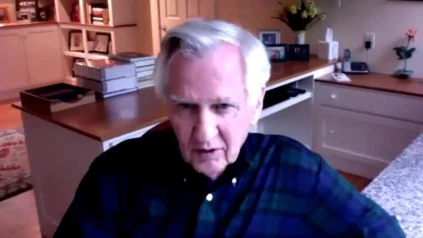Edward J. Benz, Jr., MD at Dana Farber discusses his award from American Society of Hematology Leadership in Promoting Diversity and the road ahead.
The 2020 ASH Award for Leadership in Promoting Diversity will be awarded to Edward J. Benz, Jr., MD, President and CEO Emeritus of the Dana-Farber Cancer Institute in Massachusetts and the Richard and Susan Smith Distinguished Professor at Harvard Medical School in Massachusetts. Dr. Benz is being honored for his efforts to promote women and underrepresented minority hematologists throughout the course of his career.
The ASH Award for Leadership in Promoting Diversity honors hematologists who have supported the development of an inclusive hematology workforce, encouraged the career development of underrepresented minority trainees, or made a commitment to inclusiveness through contributions in support of ASH’s mission.
An internationally recognized hematologist and physician scientist, Dr. Benz has steadfastly devoted himself to improving workforce diversity in academic medicine and health care. Over the course of his career, he personally trained more than 50 scientists in his own laboratory, a significant proportion of whom were women.
Dr. Benz’s success as a mentor (in addition to his many professional hematologic successes) is attributed to his own strong foundation of mentors and teachers who supported him through school, residency, and his early career. He shared their passion and enthusiasm for the work and the challenges that they aimed to overcome through their research. He also learned resilience and persistence from his mentors, who never let him quit or give up on himself – even in the most difficult of times.
Inspired by his own mentors, Dr. Benz successfully established a culture at Dana-Farber Cancer Institute that focused on supporting junior faculty, with specific attention to increasing the number of women and underrepresented minority faculty members. While serving as director of the Dana-Farber/Harvard Cancer Center, he launched a trans-institutional Initiative to Eliminate Cancer Disparities, designed to coordinate cancer disparities research, enhance minority medical student training, and promote development of a diverse faculty throughout the Harvard cancer enterprise. He also spearheaded a novel partnership with the University of Massachusetts Boston, the area’s largest academic institution that primarily serves minority populations, to develop a more diverse workforce, built upon community partnerships to encourage students from underrepresented backgrounds to pursue careers in health and science. Additionally, he established the first Dana-Farber clinic in a community health center for minority patients. He is currently the principal investigator of a National Institutes of Health R25 grant devoted to promoting minority careers in STEM fields.

